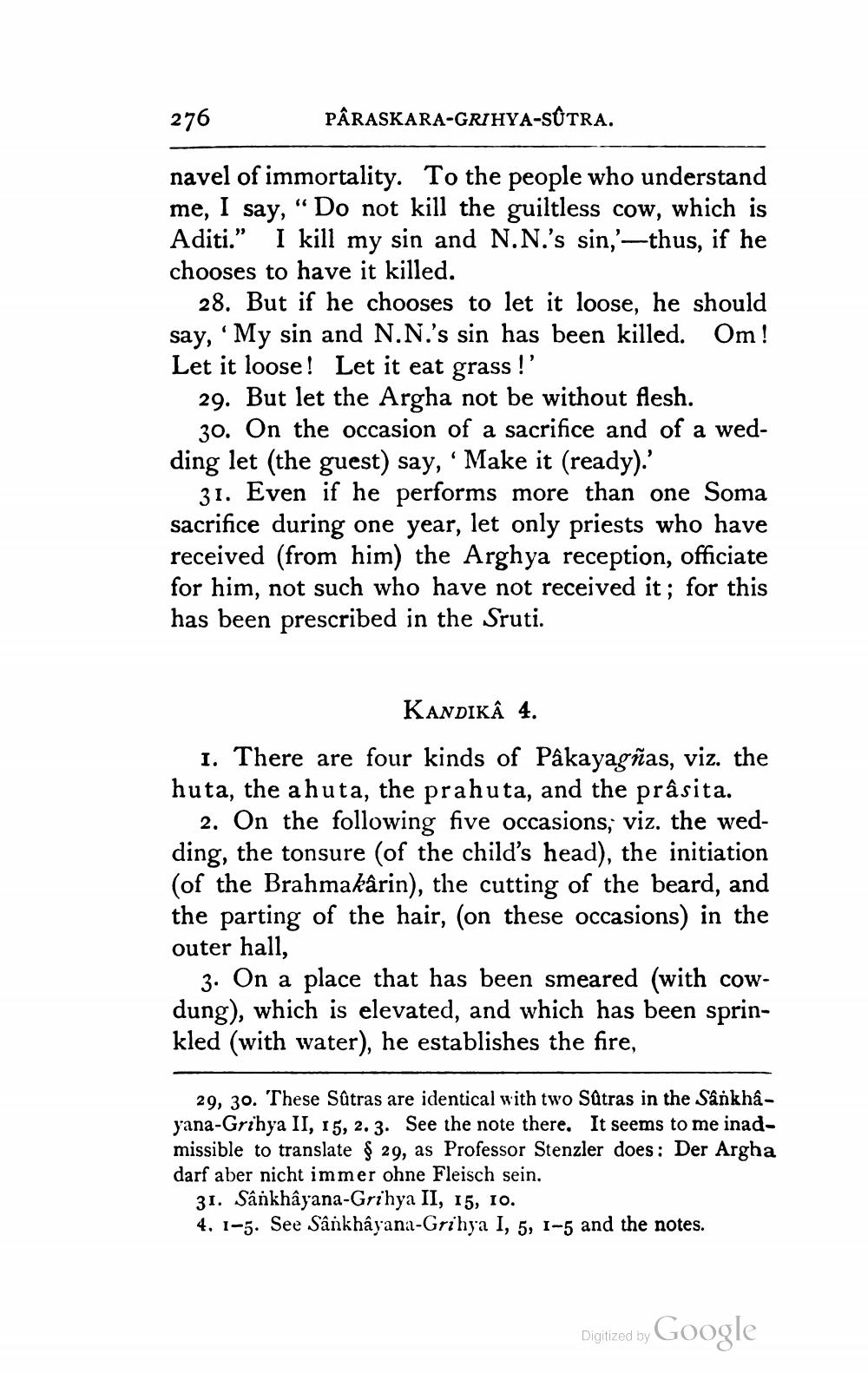________________
276
PÂRASKARA-GRIHYA-SÛTRA.
navel of immortality. To the people who understand me, I say, "Do not kill the guiltless cow, which is Aditi." I kill my sin and N.N.'s sin,'-thus, if he chooses to have it killed.
28. But if he chooses to let it loose, he should say, 'My sin and N.N.'s sin has been killed. Om! Let it loose! Let it eat grass!'
29. But let the Argha not be without flesh.
30. On the occasion of a sacrifice and of a wedding let (the guest) say, 'Make it (ready).'
31. Even if he performs more than one Soma sacrifice during one year, let only priests who have received (from him) the Arghya reception, officiate for him, not such who have not received it; for this has been prescribed in the Sruti.
KANDIKA 4.
1. There are four kinds of Pâkayagñas, viz. the huta, the ahuta, the prahuta, and the prâsita.
2. On the following five occasions, viz. the wedding, the tonsure (of the child's head), the initiation (of the Brahmakârin), the cutting of the beard, and the parting of the hair, (on these occasions) in the outer hall,
3. On a place that has been smeared (with cowdung), which is elevated, and which has been sprinkled (with water), he establishes the fire,
29, 30. These Sûtras are identical with two Sutras in the Sânkhâyana-Grihya II, 15, 2. 3. See the note there. It seems to me inadmissible to translate § 29, as Professor Stenzler does: Der Argha darf aber nicht immer ohne Fleisch sein.
31. Sankhâyana-Grihya II, 15, 10.
4. 1-5. See Sânkhâyana-Grihya I, 5, 1-5 and the notes.
Digitized by Google




